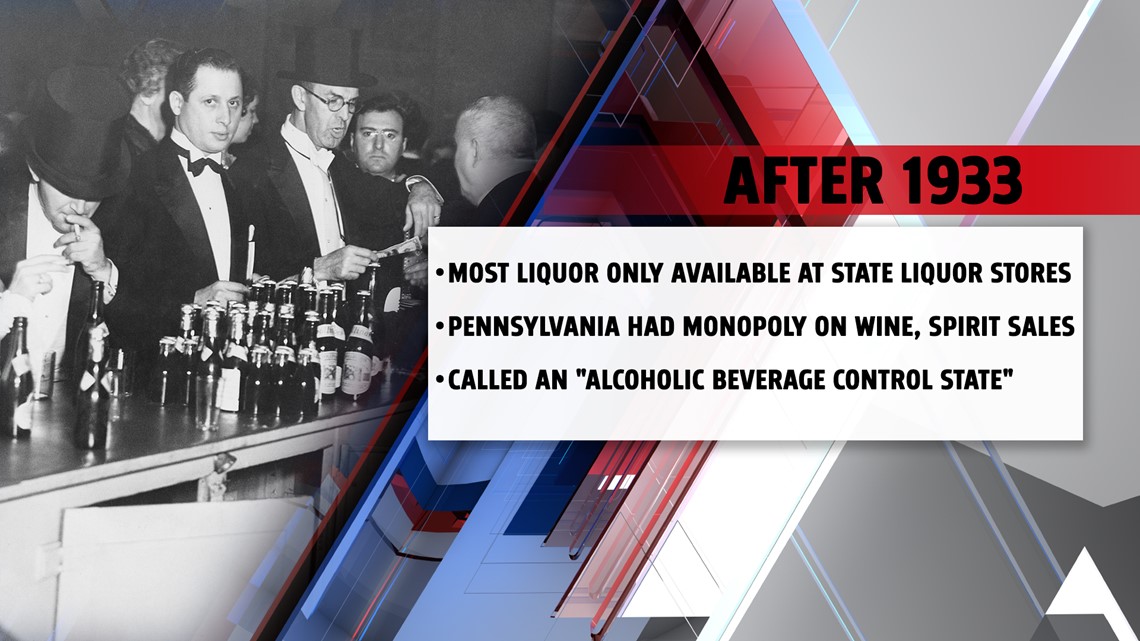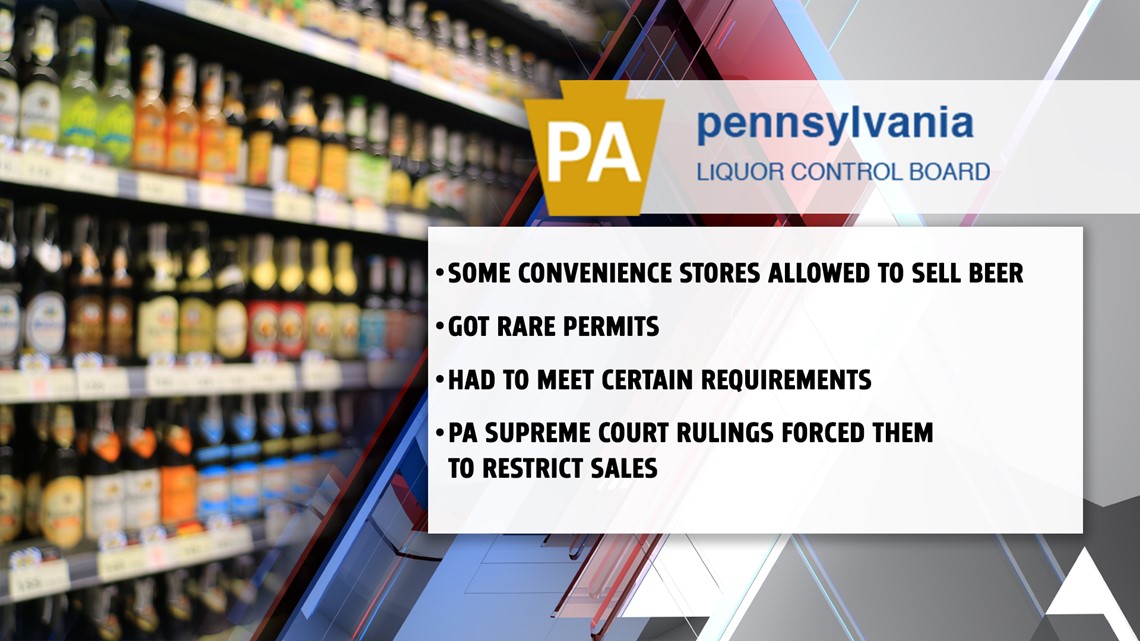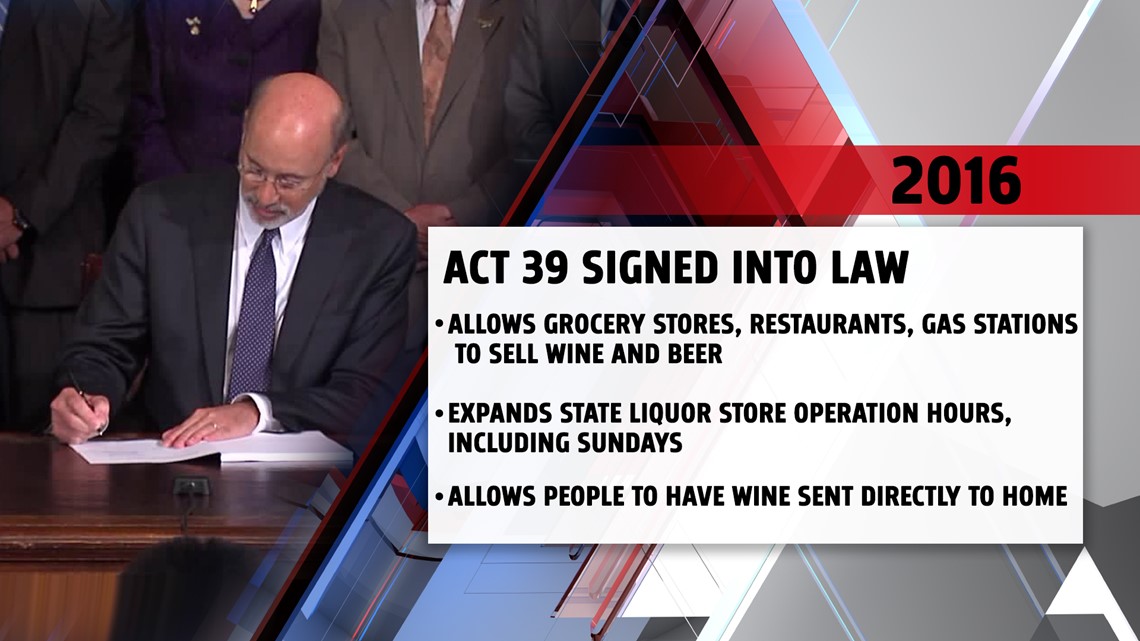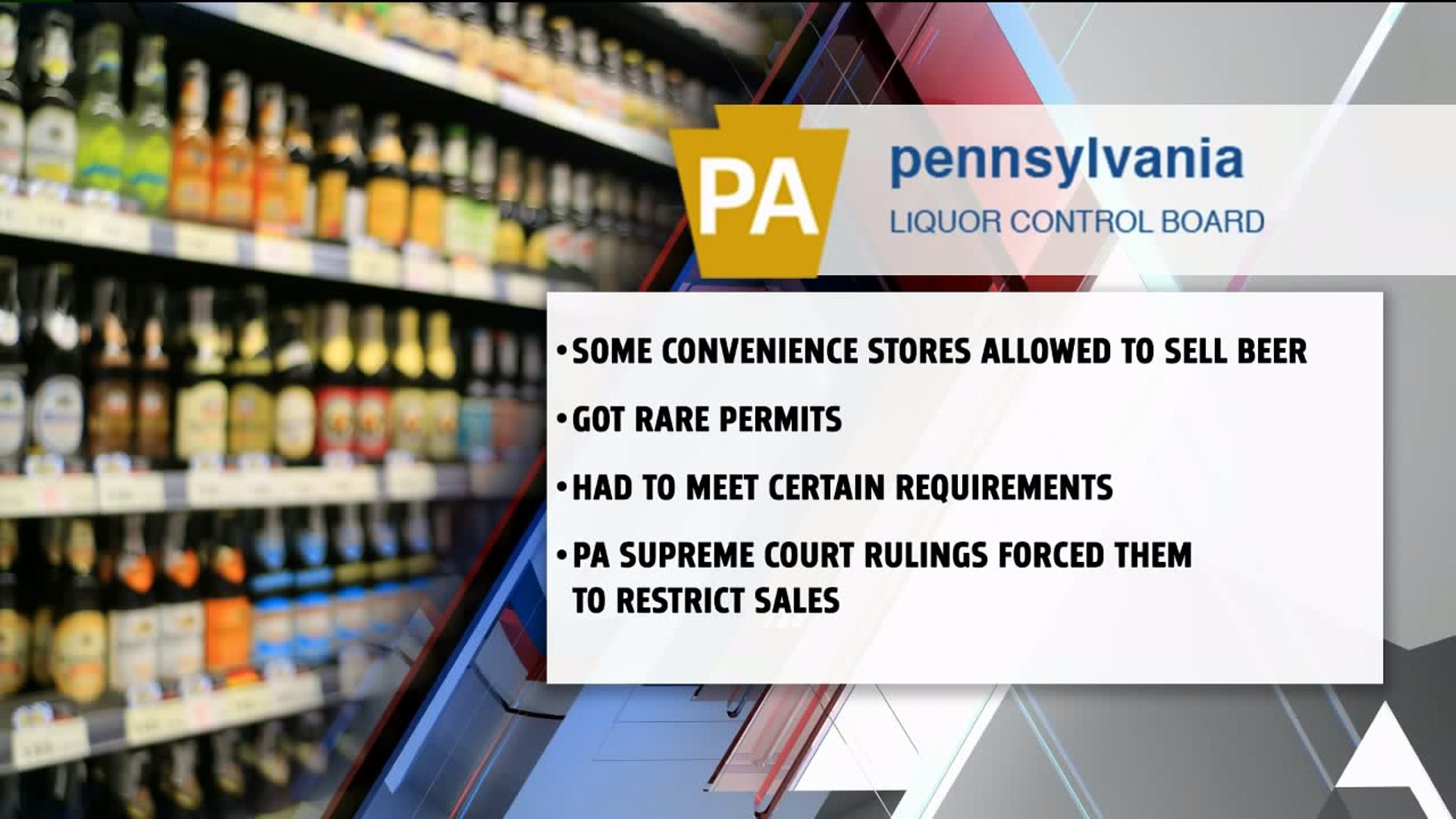HARRISBURG, Pa. -- A bill moving through the state legislature, House Bill 1279, would relax restrictions on wine purchases in Pennsylvania. It would raise the limit on the volume of wine someone could buy at a grocery store, restaurant, or convenience store from 3,000 milliliters to 9,000 milliliters.
The idea is to lend more convenience to people who buy wine for holidays and events, as many people around the Commonwealth are doing this time of year.
Convenience when shopping for any sort of alcoholic beverages in the Keystone State hasn't always been a luxury for its residents. Pennsylvania's liquor sales laws were some of the most restrictive in the country until 2016, when Governor Tom Wolf signed ACT 39 into law.


Before then, Pennsylvania was considered an "Alcoholic Beverage Control State," meaning the government was the only entity that could sell wine and spirits. After Prohibition in the United States ended, former Pennsylvania Governor Giffard Pinchot's administration managed to monopolize the wine and hard liquor sales.
State liquor stores or state beer distributors were one of the few ways someone purchase those could those kinds of alcohol. Beer could also be purchased at delis or bars.
The PLCB would grant special licenses to convenience stores over the years to sell beer. However, those exceptions were very limited and had to meet specific requirements. One example was a Sheetz in Altoona. The company had asked the Pennsylvania Liquor Control Board to transfer an "eating place malt license", which allow certain places to sell six-packs of beer, from a nearby bar and grill to their new location.


In 2007, the super-sized Sheetz became the first in the state to be allowed to legally sell beer, and one of the first gas station convenience stores to do so. But, it had to work around legal technicalities.
In order to get around provisions in the state liquor code, Sheetz had to segregate the gas station from its on-site restaurant. In essence, that made them two separate businesses. Another reason it was granted the license was because it exceeded that state requirement for delis selling beer to seat at least 30 people, the Sheetz store could seat up to 65.
Even meeting the exceptions didn't mean things were smooth sailing for customers. While people were allowed to buy beer, they were limited to two six-packs at a time. Customers also couldn't buy beer through the store's drive-thru. 40-Ounce brews, however, were available for purchase, too.
At one point, the Malt Beverage Distributors Association sued Sheetz challenging the Pennsylvania Liquor Control Board's decision to sell beer, saying its license are meant for restaurants that mainly sell beer to in-house customers and bars. Sheetz wasn't selling beer like that at the time.
In 2009, The Pennsylvania Supreme Court ruled the flagship Sheetz would only be allowed to sell beer to-go if it also served it for on-site consumption.
The Malt Beverage Distributors Association also appealed a Commonwealth Court ruling that allowed Wegman's supermarket chain to sell six-packs, sending the case to the Pennsylvania Supreme Court as well.
As complications and frustrations with the state's liquor sales policies grew, state lawmakers made efforts to privatize the state's liquor system.
State lawmakers would introduce legislation over the years to do that, and also loosen restrictions on liquor sales, but their efforts were futile.
State Speaker of the House Mike Turzai, -R- Allegheny County, introduced legislation to shut down all 600 state liquor stores, while creating 1,200 retail licenses that would be sold off to beer distributors and convenience stores in Pennsylvania. He argued Pennsylvanians were still getting their alcoholic beverages, just not in the Commonwealth; crossing state lines to put give businesses their money,
Some were concerned that shutting down Pennsylvania's grip on the market would have a harsh impact on its finances. Opponents of the legislation argued 4,000 state employees would lose their jobs, and after five or six years the state would start to lose $200 million a year.
In 2015, Speaker Turzai introduced House Bill 1690, which would ultimately become Act 39. This bill would not include the provision to shut down the state liquor stores, but they would have to close if the number of private outlets in a given county were twice that of state-run stores.


It would also allow grocery stores, restaurants, and gas stations to sell wine and beer, so long as they were approved an application through the PLCB. Furthermore, it expanded state liquor store hours, including hours on Sundays. People could get wine delivered directly to their homes.
On June 8th, 2016, Governor Tom Wolf signed House Bill 1690 into law, making Act 39 the law of the land. It was the biggest reform to the state's liquor system in more than 80 years. But there are still restrictions that don't really seem to make a lot of sense to most people.
Customers are only allowed to buy one box of wine at grocery stores, and four bottles of 750 milliliters bottles of wine at a time. So, the new bill would allow folks to pick up three boxes of wine, and 12 750 milliliters bottles per transaction.
The bill's sponsor, State Rep. Natalie Mihalek, -R- Allegheny, Washington Counties, told Fox43 in an interview the policies should be relaxed, so people can relax when shopping for the holidays.
The bill was approved in Committee, and is headed to the State House of Representatives for a vote.

